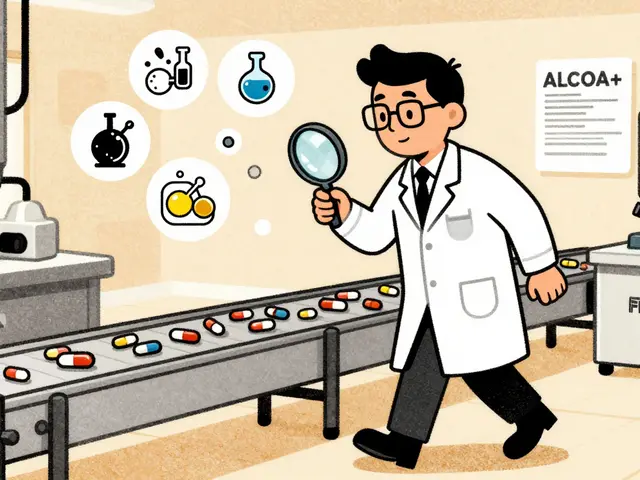Professionalism in Pharmaceuticals: clear rules for safe care
Professionalism matters when you're reading drug guides, buying medicine online, or managing a chronic condition. Bad info or sloppy pharmacies can cost time, money, and health. Here are practical steps to spot reliable sources, pick trustworthy pharmacies, and protect your safety and privacy.
How to spot a professional source or pharmacy
Check credentials first. A reputable site or online pharmacy lists a physical address, licensed pharmacist contact, and verifiable registration (FDA, MHRA, or national regulator). If those aren’t easy to find, flag it and move on. Real pharmacies ask for a prescription for prescription-only drugs. If a website sells antibiotics, controlled meds, or prescription-only treatments without asking for a prescription, that’s a red flag.
Look for clear product details: active ingredient, dosage, batch number or NDC/GTIN, expiry date, and manufacturer. Legitimate listings include side effects, interactions, and contraindications. If an article promises miracle cures without risks, treat it skeptically — professional content gives balanced benefits and harms.
Practical safety checks before you buy or follow advice
Read the privacy and contact pages. A professional site explains how it handles your data and how to contact the owner or a medical expert. For e-pharmacies, prefer those that offer pharmacist chat or phone support. Ask questions about the product, shipping, and returns. If answers are slow or evasive, don’t proceed.
Compare prices but don’t chase the lowest cost. Extremely low prices often mean counterfeit or substandard products. Search company reviews from independent sources, not just testimonials on the same site. Check regulatory notices — recalls, FDA approvals, or warnings are public and easy to verify.
When a medication requires monitoring (blood tests, EKGs, dose adjustments), a professional provider will explain that and recommend follow-up with your prescriber. For example, high-risk drugs like isotretinoin or certain heart medications need clear instructions and monitoring plans. If these are missing, seek care elsewhere.
Use basic verification tools: look up the pharmacy’s licence number in the national database, confirm the medical author’s credentials (MD, PharmD), and cross-check medical claims against trusted sources like professional guidelines or peer-reviewed summaries. Reliable pages cite sources or link to guideline documents.
Finally, protect your personal info. Only give sensitive details through secure pages (look for HTTPS), and avoid sharing full ID or payment data via unsecured email. Professional services provide secure payment options and explain data retention policies.
HeyDoctor.com collects practical guides, safety checks, and clear explanations to help you make safer decisions — from ordering medicines online to understanding treatment alternatives. If something feels off, trust your instincts and ask a licensed clinician before acting.

- Nov 8, 2023
- Posted by Cillian Osterfield
Travel Sickness and Your Career: How to Stay Professional
Hey there! If you're like me and travel sickness gets in the way of your professional life, you understand the struggle. In this post, we are going to dive into how we can combat travel sickness while still maintaining our professionalism. I'll share tips on managing symptoms, making travel plans that suit our needs and communicating these issues at our workplace. It's time we take control of our careers regardless of travel sickness.
Categories
- Health and Wellness (70)
- Medications (68)
- Health and Medicine (28)
- Pharmacy Services (12)
- Mental Health (9)
- Health and Career (2)
- Medical Research (2)
- Business and Finance (2)
- Health Information (2)
Latest Posts
©2026 heydoctor.su. All rights reserved





